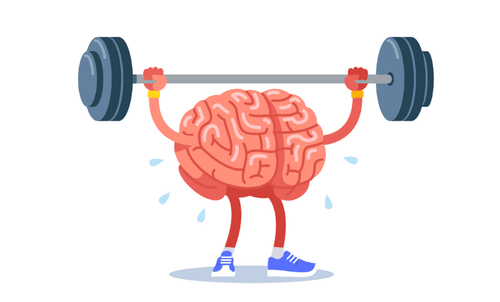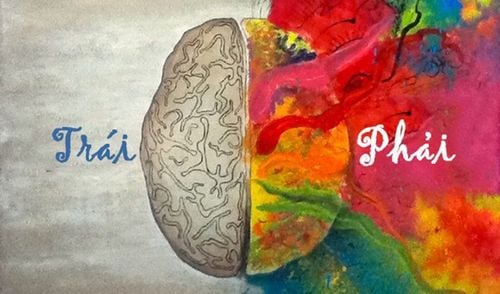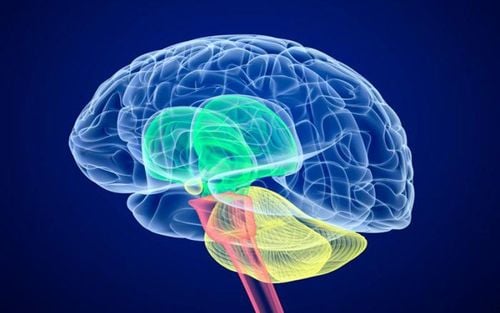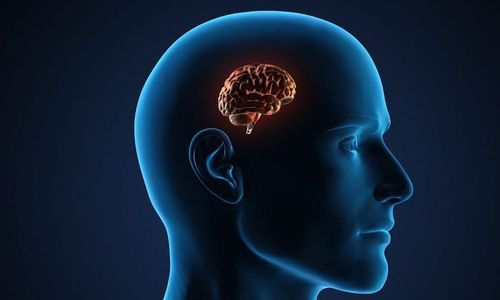This is an automatically translated article.
The brain is considered the most important organ of the human body. It participates in and controls most of the major body functions and activities. Normally, the brain will be divided into many different lobes, each of which plays a separate role. When these lobes are affected, certain health problems can be caused in humans.
1. Overview of the human brain
The brain is one of the largest and most complex organs in the human body, made up of 100 billion interconnected neurons. It holds many important functions as well as conveys messages with many different meanings of things happening around us through the 5 main senses, including: sight, hearing, smell, touch and taste sense.
The human brain is made up of many specialized areas that work together, including:
The cerebral cortex: The outermost layer of brain cells. Normally, thought and voluntary movements will be initiated in the cerebral cortex. Brainstem: The part between the spinal cord and the rest of the brain. It holds basic functions such as controlling breathing and sleeping. Basal ganglia: This is a cluster of structures in the center of the brain. The basal ganglia coordinate messages between different brain regions. Cerebellum: Located at the base and back of the brain. The cerebellum is normally responsible for the coordination and balance of the body. In general, the brain helps the body control memory, thoughts, actions, words and many other vital functions. In addition, it also helps people regulate breathing as well as heart rate in stressful and stressful situations, such as job loss, illness, childbirth, or taking an exam, ...
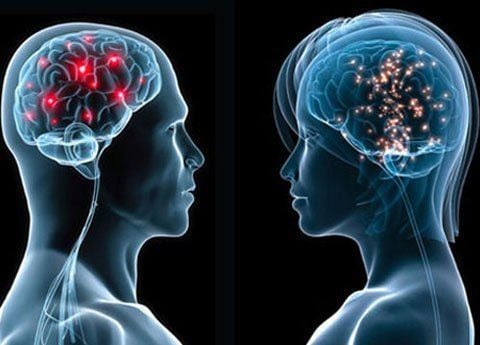
Bộ não có vai trò lớn nhất đối với cơ thể con người
Normally, the brain of a newborn baby will have an average weight of about 450 grams. For an adult woman, the brain will weigh on average about 1220 grams, and in an adult male will weigh about 1360 grams.
2. The lobes of the brain
Each side of the brain is divided into 4 main lobes, including: frontal lobes, parietal lobes, temporal lobes, and occipital lobes. Here are the main functions of each lobe:2.1 Frontal lobe
This is the largest of the four lobes in the brain, responsible mainly for problem solving, judgment, and motor function. The primary motor cortex (central anterior gyrus) often determines the movements of body parts.
Meanwhile, the prefrontal cortex controls important functions such as intelligence, memory, temperament, concentration and personality. Located next to the primary motor cortex is the premotor cortex.
Its main role is to guide the movements of the head and eyes and determine the direction of the body. In addition, another region located in the frontal lobe, the left hemisphere of the brain, called Broca, also holds a particularly important place in the production of language.
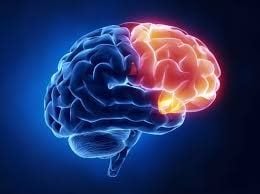
Hình ảnh của thùy trán
2.2 Parietal lobe
Helps process information about temperature, taste, touch and motion. Humans can rely on newly received memory and emotional messages to infer the meaning of things. Damage to the parietal lobe can cause problems with memory, language, and vision.
2.3 Temporal lobe
Helps process memories, integrating them with the senses of taste, sound, sight and touch. The temporal lobe is usually located in the lower part of the brain, divided into two different parts in each hemisphere.
The right hemisphere of the brain will control visual memory, helping you to recognize faces and objects around. Meanwhile, the left hemisphere of the brain will control language memory, helping you to understand language and remember.
In addition, in the temporal lobe there is also the hippocampus - helping to form memories in the brain. Some problems with memory, language skills, or speech recognition can occur if the hippocampus is damaged.
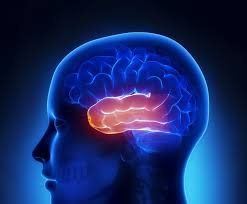
Hình ảnh của thùy thái dương
2.4 Occipital lobe
Located at the back of the brain and contains the brain's visual processing system, making it easy for humans to receive and process visual information. The main visual area located in the occipital lobe is responsible for receiving and analyzing information received from the retina of the eye.
If this area is damaged, it can seriously affect vision, causing problems such as color blindness, difficulty recognizing objects, sometimes not recognizing words.
3. Certain conditions can affect the brain
Here are some health problems that can affect brain function, including:
3.1 Headaches
There are many different types of headaches, some of which have serious effects on the brain. However, most headaches are manageable and can be treated with pain relievers.
3.2 Stroke (cerebral infarction)
Blood and oxygen flow to an area of brain tissue is suddenly interrupted and death can cause blood clots in the brain. This is the leading cause of strokes.
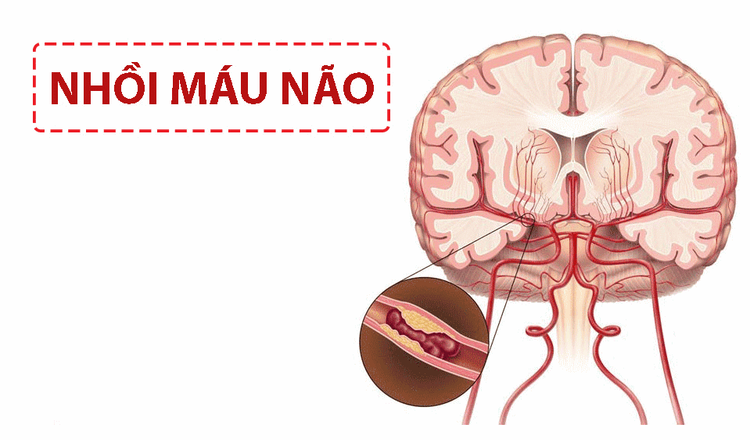
Bệnh nhồi máu não có thể ảnh hưởng đến chức năng não
3.3 Brain aneurysm
When an artery in the brain grows in a weak area, it can bulge like a balloon. When these arteries burst, there is a very high risk of stroke.
3.4 Subdural hematoma
A subdural hematoma is bleeding in or below the dura mater – the inner lining of the skull. This problem can put a lot of pressure on the storm and lead to neurological problems.
3.5 Cerebral hemorrhage
Brain hemorrhage is bleeding inside the brain.
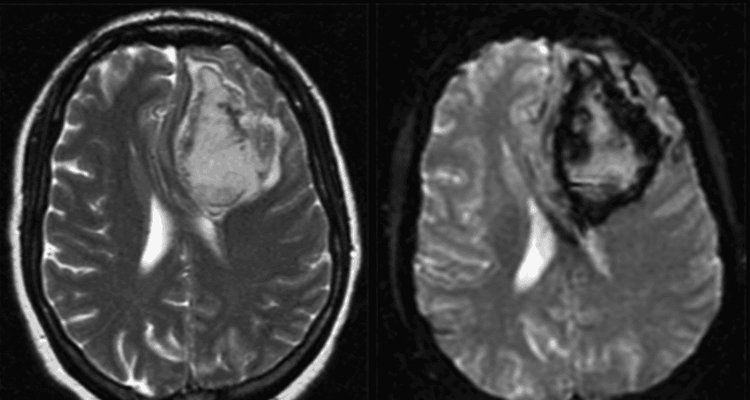
Hình ảnh MRI xuất huyết não
3.6 Injuries
Trauma to the brain can cause temporary disruption of brain function.
3.7 Cerebral edema
Is swelling of brain tissue due to injury or electrolyte imbalance.
3.8 Brain Tumors
Brain tumor consists of abnormal tissue growth inside the brain. Whether malignant or benign, brain tumors can cause brain problems due to the pressure they exert on the brain.
3.9 Hydrocephalus
Hydrocephalus is an abnormal increase in the amount of cerebrospinal fluid inside the skull. Usually this is because the fluid is not circulating properly.
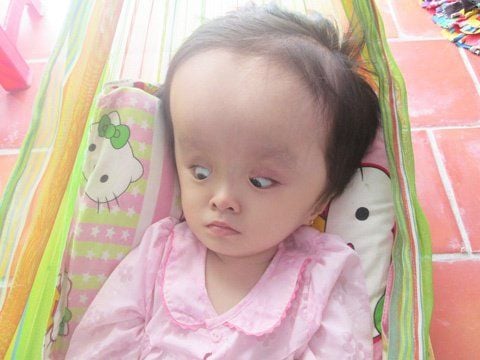
Não úng thủy là tình trạng báo động đến chức năng của não
3.10 Meningitis
Meningitis is an inflammation of the lining around the brain or spinal cord, usually caused by an infection. Some common symptoms of meningitis include stiff neck, neck pain, fever, headache, and drowsiness.3.11 Dementia
Is the decline in cognitive function caused by the death or malfunctioning of nerve cells in the brain. Degeneration of the nerves in the brain, caused by alcohol abuse or a stroke, can cause dementia.
Vinmec International General Hospital is one of the hospitals that not only ensures professional quality with a team of leading medical doctors, modern equipment and technology, but also stands out for its examination and consultation services. comprehensive and professional medical consultation and treatment; civilized, polite, safe and sterile medical examination and treatment space. Customers when choosing to perform tests and treat diseases here can be completely assured of the accuracy and high efficiency in the treatment process.
Please dial HOTLINE for more information or register for an appointment HERE. Download MyVinmec app to make appointments faster and to manage your bookings easily.
SEE MORE
Meaning and applications of cerebrospinal fluid testing Harm of game addiction to the brain and mental health What are the signs of headache, wandering thoughts?





